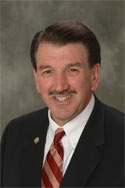By Walter V. Wendler
American universities are struggling. Rethinking purpose, attention to mission, and refreshed understanding of value are required. Ten forces at work on higher education will be addressed in the coming months.
One – A foolish man builds his house on a foundation of sand. Likewise, many U.S. universities, public and private, are built on a faulty financial footing. Nearly 50% of U.S. universities are in danger of insolvency without dramatic changes to how they view themselves, who they see as students, and what their mission is.
Two – All universities are different. But, institutions must be careful when measuring themselves against one another. Apples to apples comparisons are the only sensible type. Campus leaders at regional or baccalaureate or masters institutions typically blur the distinctions between their institution and elite private and flagship public doctoral degree granting universities. Diminishing differences undermines efficacy, reduces clarity, and misrepresents reality to students and families.
Three – Like ants, students should work hard, study, and accept responsibility for results of effort: too many are not prepared . While this is true regarding their abilities for critical thinking, basic mathematical functions, and reading comprehension these absences are not the real problem. Inability to accept responsibility rots the core of inquiry and learning. The state and contemporary family life, or its lack, trains students to be view themselves as victims with no locus of control.
Four – Our eyes should look forward, and be on task: Focus is essential. Over the past four decades faculty have begun to believe that research and scholarly activity are more important than teaching. Graduate assistants and non-tenure-track faculty may be excellent teachers, but they have a tenuous relationship to the institution by definition, and are paid like janitors, and in the best instances, plumbers. Tolerating this equates teaching to caring for dirty floors or fixing leaking pipes. This is not a diminishment of janitor or plumber who knows their craft. It is a sin of leaders and faculty who don’t.
Five – The true character of each individual’s work will become manifest. Second rate research used to quantify faculty productivity has little impact on the quality of educational offerings. Such circumstances occur at the best public and private universities and at local colleges and universities without a strong reputation for research. However these lack-of-quality-storms are more easily weathered at a place like MIT or Michigan because so much excellent work is produced there.
Six – All should speak the truth for we owe that to one and other in spite of political and university leadership relentlessly peddling the idea that any university degree has value. It is clear by the levels of unemployment and student debt not all degrees have marketplace value. Until 40 years ago this was not the case: All degrees did have market value.
Seven – Too frequently leaders turn towards personal gain, taking bribes and perverting justice. Patronage, especially at public universities, has become rampant. In some cases this patronage is political and partisan leading to political correctness. The essence of universities and their effectiveness in educating students is undermined.
Eight – The welfare of the city that hosts a campus is married to institutional welfare. Universities are becoming “go to” economic development agents based on the number of people hired. Shortsighted academic standards based on the question of “How many jobs will this decision create or cost,” are not standards. Academically excellent programs create jobs, and nothing else.
Nine – Administrative and bureaucratic operatives at universities have grown at rates equal to the cost increases experienced by students and families. Rules rather than academic purpose govern too many institutions. Bureaucratic brigades publish reports to prove the value of a university’s work. The abilities of students to think, act, and exercise skill are the only true measure of university effectiveness. The marketplace will always decide whether or not institutions are effective.
Ten – Human nature is human nature to be sure, but Students of the 21st century are not students of the 20th century. Seventeenth century educational models don’t work on twenty-first century students.
Universities are failing our nation, its students, and their families. Ineffective institutions public and private should be subject to the force of the marketplace, and not on statehouse life-support.



Speak Your Mind
You must be logged in to post a comment.